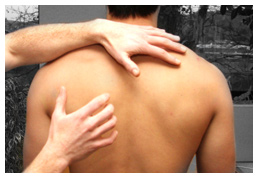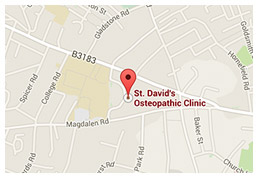Osteopathy for Babies & Children
Most people imagine babies and children should have no stresses or strains in their bodies. However, birth is one of the most stressful events of our lives and the baby is subjected to enormous forces as the contractions push through the birth canal. The baby has to turn and twist as it squeezes through the bony pelvis.
The baby's head has the ability to absorb these stresses. In order to reduce the size of the head, the soft bones overlap, bend and warp as the baby descends.
Therefore as infants grow and moulding compression from birth may contribute to some of the following problems such as recurrent infections mostly colds, glue ear, dental problems and sinus trouble.
Behavioral problems and poor concentration may also be linked to children not being comfortable from an early age and pick up fidgeting habits.
Conditions such as cerebral palsy, dyslexia and dyspraxia have all been researched and show some evidence osteopathy can help children with their development within the limits of the condition.
Infantile Colic
The most common problem Osteopaths effectively treat in babies is colic. Infantile colic is the general name given to a range of infant digestive disorders, not a single condition. It includes several different types of digestive problems:
- Reflux
- Infant gut irritability
- Lactose Intolerance
- Allergy
Each of these types of colic has different signs and symptoms, and is managed in different ways. There is sometimes an unclear picture when more than one of these types is occurring at the same time. Irritability, wind, difficulty passing stools, poor sleep, feeding difficulties are some of the common symptoms parents report to us.
The Osteopathic perspective is to focus on the relevant anatomical links such as the diaphragm/ribcage, the sphincter to the stomach, retained moulding pressure from birth, irritation of the nerve to the stomach and help relax the muscles in the gut.
Cesarean births account for a larger percentage of births either by emergency or elective caesarean. If the baby has been ‘stuck’ with the intense pressure of contractions, or quickly delivered to the heart rate dipping the procedure may cause a ‘sense of shock’ leaving the nervous system over reactive.
A difficult delivery using forceps or ventouse may also be a clue that compression of the cranium has occurred. This may be in addition to earlier compression from the baby being cramped in a confined space during the last few weeks of pregnancy. These may be contribution factors to colic.
The treatment is aimed at releasing any compressions, strains and twists that may be making babies more tense and reactive. Although we cannot always correct the cause of the colic we aim to help reduce the severity of the symptoms by releasing these strains so your baby is less often distressed.


